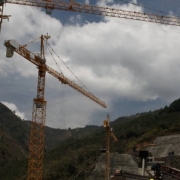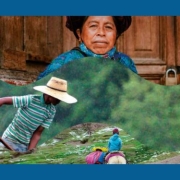Why does Argentina still not have a National Action Plan on Business and Human Rights?
In the sixth session of the United Nations Intergovernmental Working Group on Business and Human Rights, negotiations were held on the second legally binding treaty to regulate the activity of transnational companies. There is still time for this instrument to come into force, so it is still important that Argentina finalize the review of its National Plan of Action on Business and Human Rights so that the State exercises its responsibility to disseminate and implement the Guiding Principles on the business and human rights.
The United Nations Guiding Principles on Business and Human Rights have emerged as a global standard for businesses and governments to prevent and address business-related human rights violations.
Next year, the Principles will be 10 years old, for this reason, the UN Intergovernmental Working Group, in charge of preparing a legally binding treaty on this matter, has launched in the middle of this year a new project ‘UNGPs10 + / NextdecadeBHR’ with the purpose of outlining the steps to follow for the next 10 years in the area of business and human rights. In addition, it will take stock of the achievements obtained so far and analyze future challenges and existing gaps.
However, the Guiding Principles have worked and function as guides for States and businesses on how to protect and respect human rights and how to make reparation for victims. But, often, the distance between what the Principles have is usually far from the internal regulations of each State. For this reason, many countries have developed National Action Plans -PAN- so that the States are responsible for the dissemination and implementation of the Guiding Principles. Also, the NAPs serve as instruments of change capable of adapting to the local context but they do not hold transnational companies responsible for human rights violations, which is why it is relevant to have a legally binding treaty on this matter.
Thus, efforts to develop a legally binding treaty on business and human rights began in 2014. Since then, the Intergovernmental Working Group has worked to perfect this instrument by improving the content, scope, nature and form of the instrument. Last year, the Revised Draft of the binding treaty was published and discussed at the Annual Forum held in October 2019. In August this year, the Chair of the Intergovernmental Working Group published the Second Revised Draft of the legally binding instrument to regulate the activities of the companies and in October the sixth period of negotiations between the parties involved will be held.
However, until the approval and adoption of the Treaty by the States, the preparation and application of the NAPs continues to be necessary. So how is Argentina doing on this issue?
On the website of The Danish Institute for Human Rights, there is a map that details which countries already have a NAP, which are developing it, and which have other non-state initiatives. Argentina is in the group of countries that is still developing its National Action Plan. Consequently, and due to the importance of having a NAP, in September we made a request for information to the national government, consulting the status of the Argentine National Action Plan on companies and human rights. The response was provided in two parts, first in late September and then the information was completed in mid-October.
The Argentine PAN has already been prepared and for it to enter into force a decree from the President of the Nation is necessary. However, the Nation reported that the Draft Decree for the approval of the National Business and Human Rights Action Plan is under review by government authorities. Moreover, it has not yet been defined whether the participation of civil society through public consultations will be allowed, which is necessary to achieve a greater commitment to guarantee the respect and protection of human rights by the State and companies. transnational corporations and effective remedies for the victims.
When consulting on the position of the national government regarding the legally binding instrument, the Ministry of Foreign Relations replied that Argentina abstained from Resolution 26/9 of 2014, which approves the constitution of an Intergovernmental Working Group for the purpose to develop a legally binding international instrument to regulate the activities of transnational corporations and other commercial companies with respect to human rights. However, Argentina has participated in all the sessions held by the working group and was present at the last session in October this year.
So, it is not only necessary and urgent that the UN Working Group advance in the elaboration and conclusion of the Treaty, it is also urgent that Argentina do the same with its National Plan of Action on business and human rights. As the plans are oriented according to the Guiding Principles, elaborated according to the context of each State, they must be the product of transparent, participatory processes and open to dialogue. For this reason, it is essential that the National Government jointly review with civil society, academia, unions and other interested parties, the draft of the PAN so that it effectively serves as an instrument in the elimination of obstacles and in the promotion of good practices in the compliance with human rights related to business activities.
From Fundeps we will continue to monitor the process of elaboration of the Argentine PAN as well as the International Legally Binding Treaty on transnational companies and human rights.
More information
- 9th Annual Forum on Business and Human Rights – Fundeps
- The V Regional Forum on Business and Human Rights for Latin America and the Caribbean was held – Fundeps
- When the discourse is diluted: human rights and transnational companies – Camila Bocco
- National Action Plans on Business and Human Rights – The Danish Institute for Human Rights
- Binding Treaty on Business and Human Rights: Comments from Fundeps and the new revised Draft – Fundeps
- The second revised draft legally binding instrument on business activities and human rights – OHCHR
- Argentine National Action Plan on Business and Human Rights (draft) – Ministry of Justice and Human Rights of the Nation
Author
- Sofia Brocanelli
Contact
- Gonzalo Roza, gon.roza@fundeps.org





